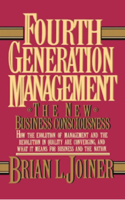Blog posts on systems thinkingPosts selected fromManagement Blog - Engineering Blog - Investing Blog and other blogs - The Quick Fix
W. Edwards Deming
One trouble with American industry today is that top management supposes that one lecture or one day will do it. “Come, spend a day with us, and do for us what you did for Japan, that we too may be saved.”
continue reading: The Quick Fix - Lessons on Competition from Mother Nature
 Too often I see simplistic thinking used to accept that the results were good so what we did was wise or the results were bad so what we did was unwise. Sometimes those conclusions have merit. Sometimes they don’t. The results matter but understanding the nature of those results is important. Was it due to luck (did our company due well because the overall market boomed and we were taken along for the ride). Was it due to taking risks that happened to work out well now but is likely to result in bad results in the future? Is it just random variation that we attribute to good luck? continue reading: Lessons on Competition from Mother Nature - Technological Innovation and Management
 Organizations need to be designed to be robust and to cope well with the increasingly rapid pace of transformative innovation. This again reinforces the importance of management improvement practices that I have been writing about here (on the Curious Cat Management Improvement blog) for more than 10 years. Organizations that do not delight customers, know the jobs to be done that their customers have, focus on the future (long term thinking), understand how to use data, have well designed processes that allow those at the gemba to know what to do and know how to rapidly adjust based on new realities and possibilities are at great risk. continue reading: Technological Innovation and Management - Agile Software Development and Deming's Ideas
- Lean Thinking and Management
I agree that we should acknowledge the paucity of success stories for improving the practice of management. The failures of management are not minor. The problems are large and the successes seem limited. The biggest thing I think we need to learn from this is that improving management is not easy. The concepts may seem simple but most of us can look around and see much more Dilbert Boss behavior than lean thinking behavior. And the gap between those two types of behavior seems to rise as you go “up” the organization chart. continue reading: Lean Thinking and Management - The Importance of Critical Thinking and Challenging Assumptions
 Critical thinking is important to applying management improvement methods effectively. It is important to know when decisions are based on evidence and when decisions are not based on evidence. It can be fine to base some decisions on principles that are not subject to rational criticism. But it is important to understand the thought process that is taken to make each decision. If we are not clear on the basis (evidence or opinion regardless of evidence) we cannot be as effective in targeting our efforts to evaluate the results and continually improve the processes in our organizations.
...
Changing the culture to one that values understanding and learning takes time. That process must be done with an understanding of psychology and the challenges of getting people to evaluate decisions. Creating a culture where it is expected that people think about the evidence and are comfortable explaining and defending the reasoning behind decisions is extremely important. continue reading: The Importance of Critical Thinking and Challenging Assumptions - Dangers of Forgetting the Proxy Nature of Data
 We use data to act as a proxy for some results of the system. Often people forget that the desired end result is not for the number to be improved but for the situation to be improved. We hope, if the measure improves the situation will have improved. But there are many reasons this may not be the case (one number improving at the expense of other parts of the system, the failure of the number to accurately serve as a proxy, distorting numbers, etc.).
I find something I learned from Brian Joiner an excellent summary – which I remember as:
Data (measuring a system) can be improved by
- distorting the system
- distorting the data or
- improving the system (which tends to be more difficult though likely what is desired)
Brian Joiner’s book, 4th Generation Management is a great book for managers.
continue reading: Dangers of Forgetting the Proxy Nature of Data - Taguchi Loss Function
In practice, I have seen the concept of the Taguchi Loss Function used quite a bit. I have never actually seen any losses quantified and totaled and shown on a graph. I think focusing specifically on who suffers a loss and what that loss could be, can help. I think actually quantifying the losses to society can be daunting. So, while I see the value in framing the concept that way I think to actually get the losses quantified you are best served by starting with those closest to the process and then adding additional loses to those results.
Second, if you attempt to use the concept to help you manage (as a guide in decision making) the impacts to society are a factor, but, I think the loss to your company, the customer and perhaps the end user are most important. A negative impact to society at large is not going to have the same impact to a decision maker as the same negative impact to the customer. The decision maker will likely be willing to invest more to reduce the loss to a customer than to society at large (and that seems logical and sensible to me). continue reading: Taguchi Loss Function - Drug Prices in the USA
There is the contention that without the ability to overcharge American’s the drug companies won’t invest in Research and Development. This is such a poor argument I can’t believe people can make it without suffering a big blow to any credibility they had. Obviously drug development has a very high cost (creating a high fixed cost) and often drug manufacture has a small marginal cost (though at times the marginal cost is also high). Right now the companies count on the American market to provide funds for much of the research, development, marketing and profits. Then they sell the drugs in other markets only looking to maximize profits looking at marginal costs. Obviously, if they no longer could count on excessive prices in the United States they would have to spread the fixed cost over the rest of the world. The argument that they won’t invest in research and development without excessive costs in America is false. They would adjust their pricing structures around the world based on losing the cash cow of the American consumer. That should be obvious to anyone who even took one economics course. continue reading: Drug Prices in the USA - Operational Excellence
Saying the organization is focuses on new principles (partnering, lean, etc.) is not the same as applying those principles with the great success that Toyota does. That difference is huge and is driving many companies to outsource and try to dramatically cut costs. Reducing costs should be the outcome of improving efficiency.
Toyota is successful manufacturing in the USA.
...
I would agree that many companies don’t understand the critical importance of management excellence. Rather than take the difficult path to lead real change in their organization they focus on simple cost cutting measures (though usually not cutting executive salaries which have grown dramatically and are excessive in the USA compared to the rest of the world). That won’t work. continue reading: Operational Excellence - Statistics for Experimenters – Second Edition
 Complete with applications covering the physical, engineering, biological, and social sciences, Statistics for Experimenters is designed for individuals who must use statistical approaches to conduct an experiment, but do not necessarily have formal training in statistics. Experimenters need only a basic understanding of mathematics to master all the statistical methods presented. This text is an essential reference for all researchers and is a highly recommended course book for undergraduate and graduate students.
This updates the classic text by George Box, William Hunter (my father) and Stu Hunter. continue reading: Statistics for Experimenters – Second Edition - Performance without Appraisal
 In the short article Performance Without Appraisal: What to do Instead of Performance Appraisals, Peter wrote:
Dr. Deming said of Performance Appraisals, “Stop doing them and things will get better.” He was correct. Many organizations, however, wonder what to do instead.
For those that do require “some alternative” Peter included some good ideas in The Leader’s Handbook(see chapter 9 “Performance without Appraisal pages 293 to 368). This chapter has excellent material for any manager. continue reading: Performance without Appraisal - Traffic Congestion and a Non-Solution
For decades traffic congestion has been a problem in American cities and one that has continued to get worse. The typical proposed solution is to increase the number of roads. The theory behind this solution is not normally stated but, I believe, it amounts to: “if we build more roads then the system will have more capacity which has to decrease congestion.” Unfortunately this theory fails to take into account the past data on the increasing capacity of roads “solution.”
...
Ackoff’s solution does require actually changing the system. That is not easy to accomplish. However, if the desire is to reduce congestion the solution is not likely to be to just keep doing what we have been doing (given that it isn’t working). Building more and more capacity doesn’t seem to achieve the desired results. continue reading: Traffic Congestion and a Non-Solution - Estate Tax Repeal is a Very Bad Idea
The estate tax is the most capitalist tax that exists. Capitalism, which some seem to think is based on people inheriting assets from their relatives, is not. Capitalism is based on the concept that each person gets to receive rewards for their work.
Long before Adam Smith, noble rich passed on their wealth to their heirs. It was not Capitalist then and it is not Capitalist now.
You have to have some taxes to run the government. The income tax is a poor tool, as it is a direct disincentives to positive economic activity. The best tax is one that doesn’t take anything from someone who earned it. And that is exactly what the estate does, tax a portion of the millions someone is given.
The income tax, however, is the largest source of income and therefore it will not disappear. But if you are going to lower taxes, that is the tax you should lower not one on people being given millions of dollars. continue reading: Estate Tax Repeal is a Very Bad Idea - Targets Distorting the System
 I still remember Dr. Brian Joiner speaking about process improvement and the role of data well over a decade ago. He spoke of 3 ways to improve the figures: distort the data, distort the system and improve the system. Improving the system is the most difficult. continue reading: Targets Distorting the System
|